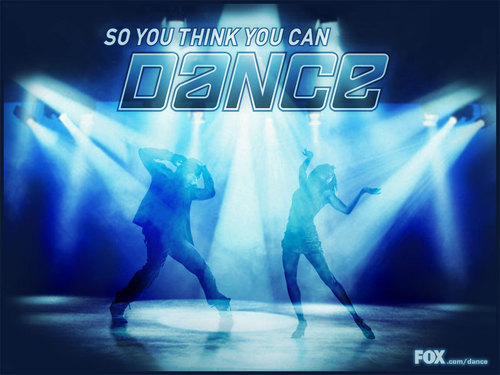
I'm watching "So You Think You can Dance", and one of the judges mused at the fact that they have 3,000 audience members in the Kodak theater "watching dancers!". The implication being that Dancing is popular now, it's "in" now. Which got me thinking, can you mainstream everything now? I mean look at our TV programs these days: Top Chef (cooking? Why would you spend hours watching people dice onions?); Dancing with the Stars (old people trying to dance?); Project Runway (fashion is great, but nearly 4 million viewers per week? 4 million people watching designers cut and glue fabric together...); the Biggest Loser (watching a whole bunch of people running on treadmills)...all these shows turn mundane or otherwise niche activities into the feature presentation. What is it about these shows that keep drawing millions of viewers every week? Methinks it's a combination of good editing (HUMAN DRAMA!!!), and peer pressure.
Good editing first -- you need the good editing to draw viewers, they have to be entertained, and what better entertainment than drama? There's an interesting post at Mind Matters about how when we watch TV, we get less lonely because we experience something called the parasocial relationship phenomenon:
- "Parasocial relationships are the kind of one sided pseudo-relationships we develop over time with people or characters we might see on TV or in the movies. So, just as a friendship evolves through spending time together and sharing personal thoughts and opinions, parasocial relationships evolve by watching characters on our favorite TV shows, and becoming involved with their personal lives, idiosyncrasies, and experiences as if they were those of a friend"
This is where peer pressure comes in. The social aspect of watching these shows are valuable to us--for 2 separate reasons:
1. Participation in social context: We want to watch Idol so we can discuss it over the water cooler at work tomorrow: "ohmygod i can't believe so and so got kicked off! he was soooooo good!" If you're left out of that conversation, then you'd feel pretty alone, right? So you might as well spend an hour watching Idol just so you can join some conversations at work. Before you know it, you're emphatically expressing your grief over the loss of Sanjaya on Idol.
2. Demonstration of social value: These shows, with their format of competition, judge evaluation, and finally audience participation, have taken a step further than traditional shows in that they demonstrate a social value. They not only make the viewers part of the show (via voting or what not), but they also provide educational value. Through watching a half hour of So You Think You Can Dance, I now know the difference between par terre and en l'air . Equipped with this knowledge, I can participate in conversations that involve the show and/or the steps and throw in my two cents and sound like I know what I'm talking about. In this way, I can show off and demonstrate that I know stuff and that I am interesting: one way of attracting others.
This lethal combination of good editing and social value is what makes shows like Top Chef successful. Now, if we can only convert that idea to advertising...good creative+social value? Sounds like a winning campaign to me!

No comments:
Post a Comment